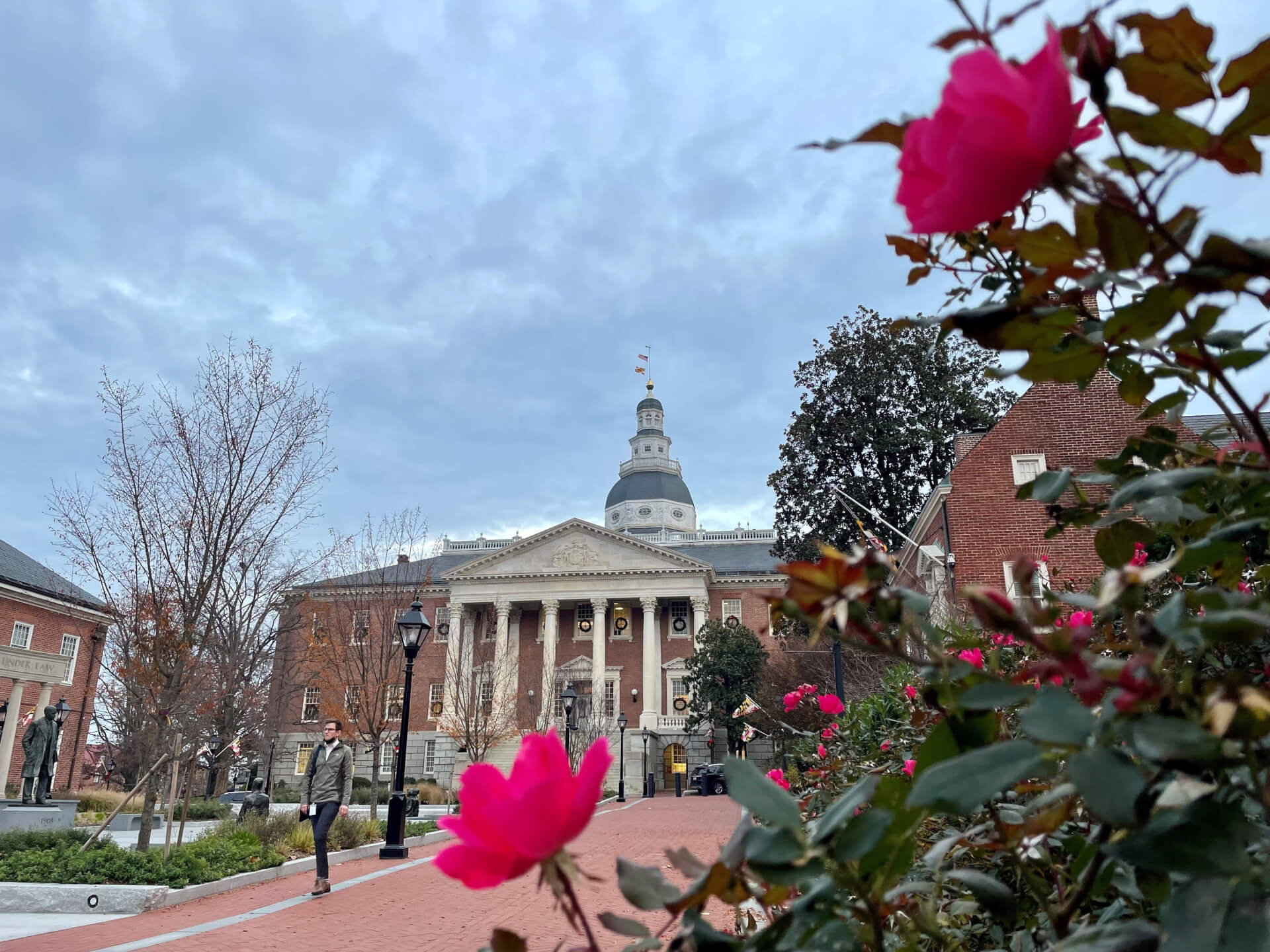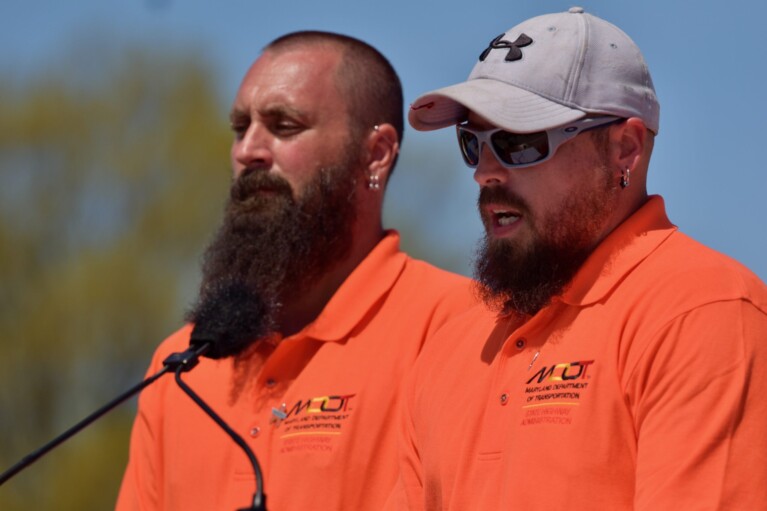
Understandably, the news that author and activist Wes Moore is taking a serious look at running for governor created lots of buzz last week.
Novice candidates often fall on their faces, but Moore seems to have unlimited potential, with an inspiring narrative that could resonate with a huge swath of the Democratic electorate. He’s already lining up a stellar team of consultants, and despite what he says about being in an exploration phase, it seems highly likely at this stage that he will run ― and remake the Democratic race in the bargain.
Moore’s political calling card will be his journey from poverty, raised by a widowed mother from a young age, to soldier, scholar, activist and entrepreneur. He’ll talk about economic inequity and racial injustice and the transformative powers of education, and he’s likely to offer a series of progressive policy prescriptions, designed for the new economy, packaged with hope, a dash of sex appeal, and faith in the art of the possible.
But would you believe there’s another potential novice Democratic candidate for governor who is also in his 40’s and also has an inspiring narrative that could resonate with a huge swath of the Democratic electorate? Who rose from personal tragedy to the highest ladders of government? Who, whether he runs or not, is already talking in Maryland about economic inequity and racial injustice and the transformative powers of education? Who’s likely to offer a series of progressive policy prescriptions, designed for the new economy, crafted through the lens of his ― and his family’s ― up-from-the-bootstrap journey?
Wes Moore became famous with his best-selling book “The Other Wes Moore,” a powerful manuscript that’s part memoir and part meditation on the criminal justice system and the myriad roadblocks that poor, young people of color face in society every day.
Now, let’s talk about this other potential candidate. He’s John B. King Jr., and often, when you discuss with political people the roster of possible candidates for governor in Maryland and you mention the name John King, they think you’re talking about the CNN political reporter and analyst.
This is the other John King.
First, the biographical stuff. King, like Moore, grew up in New York City (Moore was born in Baltimore), the son of a Black father and a Puerto Rican mother. Both of King’s parents were teachers, and both died young, leaving King an orphan when he was 12 years old.
King says that the education he received after his parents died, first in New York public schools, later in a prep school where he struggled (Moore also attended prep school and struggled, but thrived later at a military academy) ― literally saved his life. He remembers teachers who made him read The New York Times at a young age, who took his classes to museums and theaters and concerts.
“If not for them, I’d be in prison or dead,” King told the Women’s Democratic Club of Montgomery County last week.
King wound up with three Ivy League degrees (Moore went to Johns Hopkins and then was a Rhodes Scholar) and became a teacher and school administrator, eventually becoming New York State’s commissioner of education. From there it was on to the Obama administration, where he served as President Obama’s second secretary of Education.
Since the end of the Obama administration, King has been running a Washington, D.C.-based nonprofit, The Education Trust, which focuses on closing the achievement gap for students of color. Last fall, he started Strong Future Maryland, a progressive advocacy group that is focused on policy debates in Annapolis ― and is undeniably a vehicle to elevate King’s profile ahead of a possible run for governor.
OK, ok, you say, just another guy with the Obama administration on the resume who happens to live in the D.C. suburbs and sends his kids to public schools, but with no real roots in Maryland, right? Hardly: King’s ancestors were enslaved here. And just a couple of years ago, he and his family developed a relationship with the descendants of the Gaithersburg family that enslaved his relatives, who live on the same property and still have the cramped cabin where his descendants lived. Their meeting was the subject of a moving Washington Post Magazine piece.
“As we come to the end of Black History Month, I’m thinking a lot about my ancestors and the strengths I’ve drawn from them,” King told the Democratic club last week.
‘The floor, not the ceiling’
With Strong Future Maryland, King has begun to dip his toes into different policy battles at the state level, testifying or otherwise weighing in over the past few weeks on issues like gun safety, protections for essential workers and climate change. On Tuesday evening, the group is hosting a Facebook Live conversation on youth justice.
But where King can make the biggest difference ― and where his voice would be unique if he runs for governor ― is on education.
With the legislature’s override in February of Republican Gov. Lawrence J. Hogan Jr.’s veto of the Blueprint for Maryland’s Future, the sweeping education reform package, many Marylanders ― even some progressives ― believe the conversation over the future of education in the state is over for now. That the education policy box has been checked. That all that’s left is to implement the plan and see how it works.
But King takes a different view. He believes the passage of the Blueprint, at long last, means the conversation about education in the state is just beginning.
“I would argue that we have to see the Blueprint as the floor, not the ceiling,” he said. “We’ve got to continually be asking what we can be doing to build on the Blueprint.”
The next steps, in King’s view? Building on early childhood education. Guaranteeing working Marylanders access to quality, affordable childcare ― and paying childcare instructors a livable wage. Making health and mental health services readily available in public schools. Putting more counselors in schools than police officers. Diversifying the educator workforce. Investing in pipeline programs that get students into professions where there will be job openings. Partnering more closely with the state’s beleaguered HBCU’s.
Inevitably, critics will complain that these education reforms are too costly to implement, just as they did during debate over the Blueprint. But King argues that it’s time to have a conversation about making serious investments in education ― and the dividends they’ll pay.
“I’m a progressive, so there’s a job the government is supposed to do,” he said. “We all pay taxes, as members of society, to ensure that we have what we need as a society. If we have to pay a little more in taxes, we should.”
King said he’s detected a pattern with Hogan, whether it’s pulling the plug on the Red Line in Baltimore, telling Baltimore residents that they’re getting more COVID-19 vaccines than they’re entitled to, or sounding warnings about the price tag of the Blueprint plan, that have elements of a racial “dog whistle…that we’re spending too much on ‘these people.'”
King was asked at the Democratic club meeting last week whether he’s planning to run for governor.
“I’m very focused at the moment on the work we’re doing with Strong Future Maryland in the legislative session in Annapolis,” he replied. But he added: “I’m certainly thinking about how I can contribute best.”
If you are a political handicapper, it’s hard not to get swept up in the enthusiasm for Wes Moore. He could be a very powerful messenger for a very aspirational message, and if you’re a couple of old white warhorses like Comptroller Peter V.R. Franchot (D) or former attorney general Douglas F. Gansler (D), you cannot be too happy about his apparent candidacy. Same for the half dozen or so other Democrats still floating around the fringes of the gubernatorial race.
But with our education system in tatters, with all the learning loss from COVID-19, with all the inequities exposed by the pandemic, there ought to be room in this gubernatorial election for a voice like John King’s. He may lack the appeal and rock star potential of Wes Moore ― but he’s got a very consequential message of his own. Attention must be paid.





 Creative Commons Attribution
Creative Commons Attribution